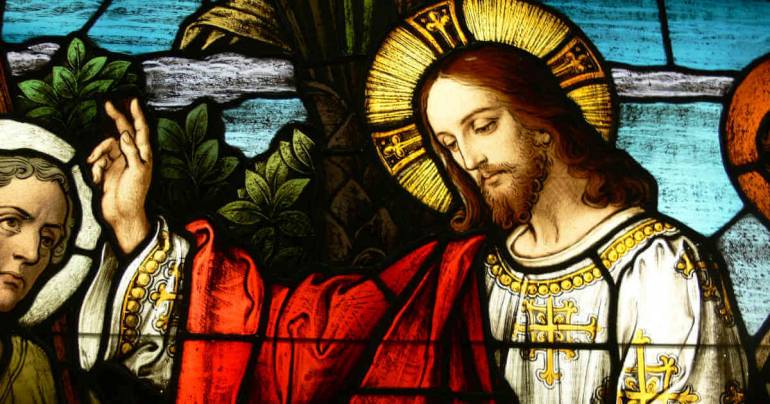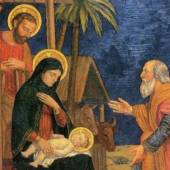Discipleship requires God-loyalty

June 18, Sunday of the 11th week in Ordinary Time
Daily Readings: Exodus 19:2-6a; Rome. 5:6-11; Gospel: Matthew. 9:36 - 10:8
What is one’s self-worth? Where does it come from? Does it come from inside the person or outside? Does it come from my provenance, culture, qualifications, talents, or anything else? Modern psychology would vouch for what the person is, but for the people of Israel, it stemmed from their relationship with God. They said: “We are His people, the sheep of His flock.” This is on the same footing as David’s claim in Ps 23:1, “The Lord is my shepherd, I shall not want.”
This is one of the best forms of relationship one can celebrate and enjoy with God. The Israelites were chosen so that they would give their hands to serve and their hearts to love God’s people. That is how they are expected to live their call/vocation.
The First Reading from the Book of Exodus finds the people of Israel in the wilderness of Sinai in today’s Egypt. Mount Sinai stands tall even today, bearing witness to the encounter between God and Moses. God calls Moses to climb up and come to His holy presence. He sends Moses back to His people with a message. The message contains a metaphor to explain God’s rapport with the chosen people and demands.
God is like a mother eagle who builds her nest in high places and teaches the eaglets to fly high. Upon diligently obeying and keeping God’s covenant, the people of Israel will become a treasured possession of God. They will be to Him a kingdom of priests and a holy nation. Everything depends upon what the people of Israel choose to be. It is worth realizing that often when such a choice is kept before humanity, we have failed. We have not fared better than our first parents, Adam and Eve.
The Responsorial Psalm celebrates the identity of Israel: we are His people, the sheep of His flock. As a result of this relationship, they are asked to sing joyfully and serve the Lord with gladness. It is also equally important to know that the Lord is God. He is the creator. Everything belongs to Him. The Psalmist claims that God’s mercy lasts forever, and his faithfulness lasts through every generation. Thus this Psalm of Praise echoes well the sentiments of Exodus.
The Second Reading from St. Paul’s Letter to the Romans states that Jesus Christ died at the appointed time for all, including the ungodly. At a time when no one is ready to break even for a just person, Jesus Christ chose to do so. This is how God proves His love for humanity. The death of Jesus brought about reconciliation and salvation. The word ‘retaliation’ was high on the agenda in the Old Testament times. Matthean Jesus taught that a believer in Christ should never retaliate but rather show generosity.
The world of Paul and our world today is not very different. God believed in forgiving sinners; more than ever, he wanted them to participate in the risen life of Jesus the Messiah. In Jesus, they are restored to the status of not only being justified but also being called friends of God.
The Gospel Reading account of St. Matthew begins with a note of compassion for troubled and abandoned people. Jesus’ heart moves with pity. This is one of the strongest feelings one can have for another. They were like sheep without a shepherd, clueless and directionless. The Lord wants to train the future shepherds, who will be called laborers. Therefore, Jesus, the charismatic central figure, summons the Twelve. A core group is created. They are given the title “apostles.” They are sent out for a special purpose. They are given authority over unclean spirits and the grace to cure every disease and illness.
It is possible that the apostles individually had strong relationships with the central figure, but how many deep ties they had among themselves is a million-dollar question. This is one of the troubling questions among priests and consecrated women and men today.
Loyalty to Jesus is something that comes spontaneously, but fidelity among the members of the group still needs to be improved. Divided loyalty creates rifts among the chosen ones.
As a result, the common goal remains a distant dream. Fulfilling the vision of Jesus is a personal responsibility.
Radio Veritas Asia (RVA), a media platform of the Catholic Church, aims to share Christ. RVA started in 1969 as a continental Catholic radio station to serve Asian countries in their respective local language, thus earning the tag “the Voice of Asian Christianity.” Responding to the emerging context, RVA embraced media platforms to connect with the global Asian audience via its 21 language websites and various social media platforms.














